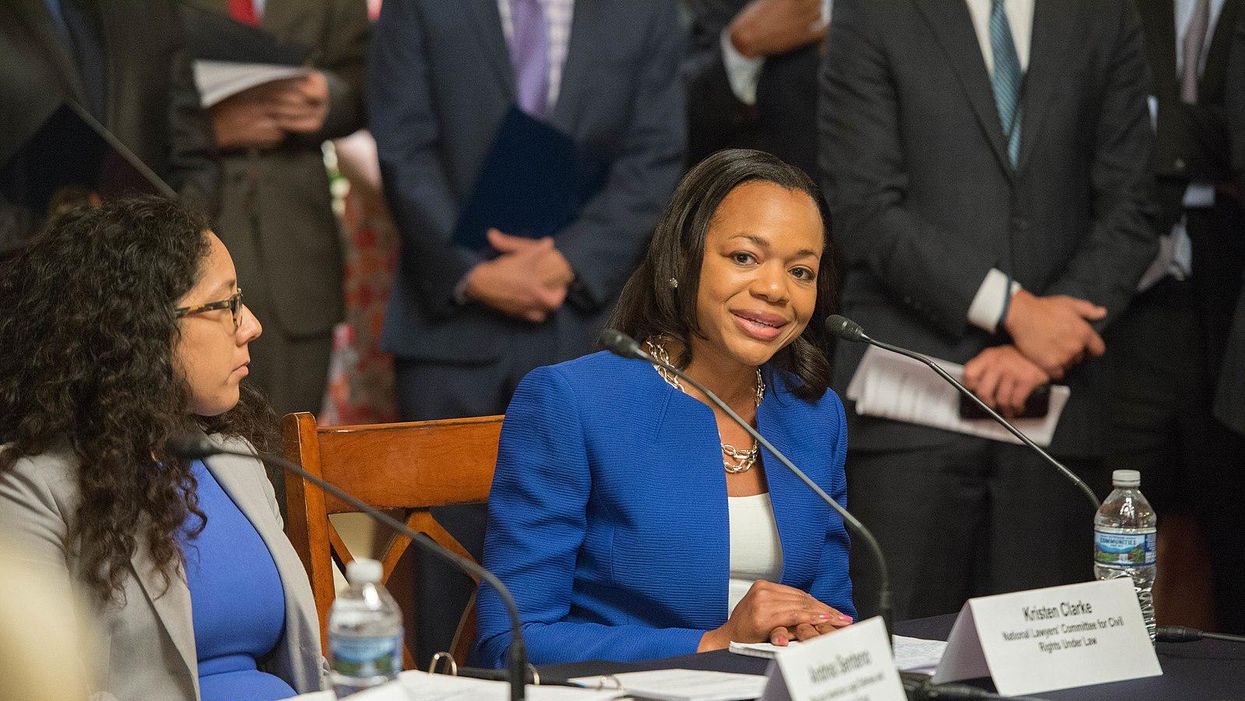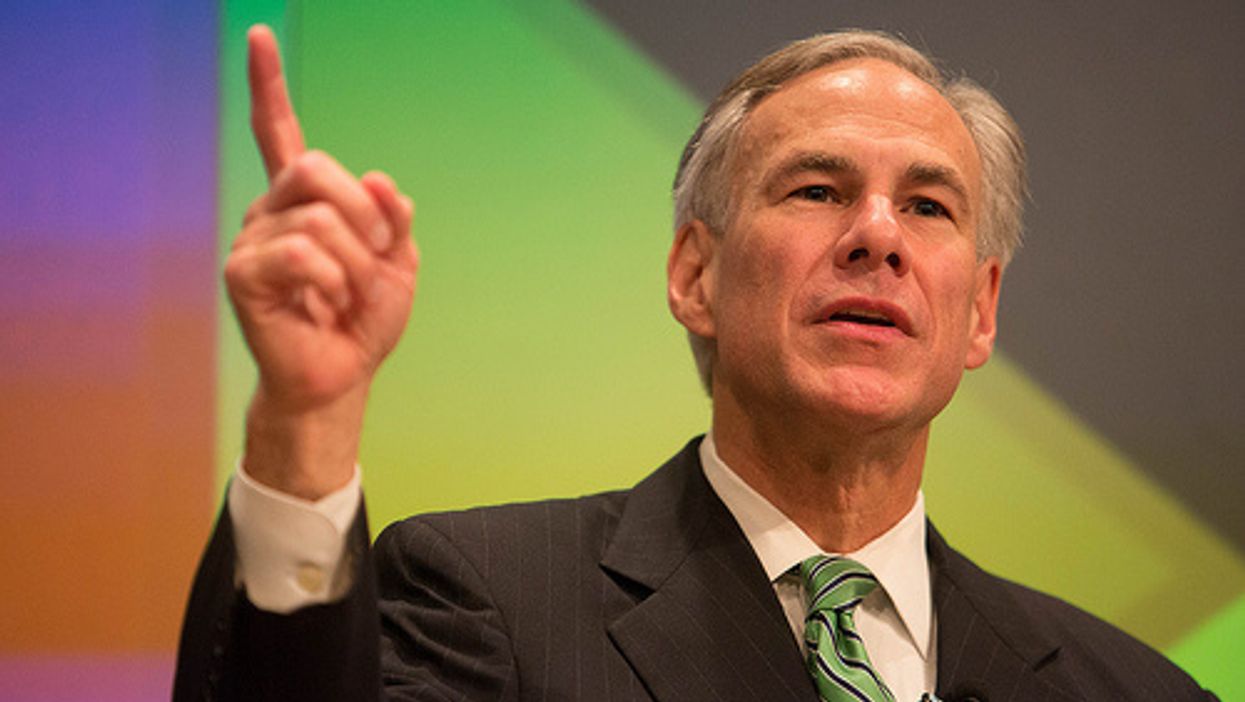Smearing An Eminently Qualified Black Woman Is Business As Usual
Reprinted with permission from Roll Call
She has been endorsed by many law enforcement groups, including the National Association of Police Organizations, yet she was accused of being anti-police. Baseless innuendo thrown her way has been refuted by support from the National Council of Jewish Women, the Anti-Defamation League, and dozens of other local, state, and national Jewish organizations. She's been tagged as "extreme," which only makes sense if being an advocate for an equitable society qualifies.
The nomination of Kristen Clarke, President Joe Biden's choice to serve as assistant attorney general for the Civil Rights Division at the U.S. Department of Justice, barely made it out of the Senate Judiciary Committee last week. Panelists split 11-11 along party lines, and then on Tuesday, the full Senate voted 50-48 to discharge the nomination from the committee, setting up a final floor vote.
Is anyone surprised at the roadblocks this nomination has faced?
Clarke, a graduate of Harvard University and Columbia Law School, is a Black woman and president and executive director (now on leave) of the Lawyers' Committee for Civil Rights Under Law — and that may be the problem. The fight for "civil rights" for all, or even truthfully teaching about the struggle that made the fight necessary, has become controversial in some quarters, especially the Republican congressional caucuses.
Women of color have had a particularly tough time before the Senate Judiciary Committee with those who won't let the facts get in the way of partisan pushback. Vanita Gupta, despite her experience and endorsements, was attacked at her hearing before her eventual confirmation as associate attorney general. And then it was Clarke's turn.
The Usual Suspects
Some of it was comical, as when Sen. John Cornyn, took Clarke's satirical college writings criticizing the racism of The Bell Curve as literal. Some of it was just bullying, the well-trod territory of Cornyn's Texas partner, Sen. Ted Cruz, who insisted that a Newsweek column, in which Clarke agreed with Biden's call for more police funding, said the opposite.
Usually, presidents get the benefit of the doubt when choosing their teams. President Donald Trump certainly did, despite questionable qualifications for a host of them. His education secretary, Betsy DeVos, not only had no education experience, she also barely hid her contempt for the public schools neither she nor any of her children attended. But the majority of Republicans approved of her, and her prioritizing of Christian and charter schools.
Fellow Texan and former governor of the state Rick Perry got Cruz's vote for secretary of energy, the department he forgot he wanted to eliminate during his infamous "oops" moment at a presidential debate in 2011. Perry also admitted he had to play catch-up on what the department actually did.
You can't make this stuff up.
Hypocrisy is not exactly new to Washington. Recently, Republican lawmakers were falling all over themselves to speechify the honoring of law enforcement during National Police Week. North Carolina Sen. Thom Tillis, in a floor speech, recognized officers "willing to risk their own lives to protect others" and warned that "demonization of law enforcement will have lasting consequences, and it will ultimately make all of us less safe." This, as members of his GOP are resisting calls to investigate the January 6 insurrection at the Capitol and downplaying injuries suffered by officers protecting those lawmakers' hides.
A Familiar Refrain
Most every Black person gets a certain bit of oft-repeated parental advice: "You have to work twice as hard to get half as far." It's resulted in a lot of overworking achievers (too close for comfort right here), and a lot of stuffed résumés. But even if you follow it to the letter, as Clarke did when she earned a scholarship to an elite prep school that took her far from her Brooklyn home and on to positions in both Republican and Democratic administrations, you might get smeared when you dare to be excellent while Black, and use that excellence to make life better for all Americans.
Many Black female leaders, allies and organizations have supported Clarke, who would be the first Black woman to hold the post, and she would certainly be a needed change from the previous administration. Business leaders, perhaps less timid after finding their voice on other issues, have signaled their approval. The Biden Justice Department, under new leadership, has tried to rebuild its mission after the Trump team seemed bound and determined to make a mockery of its name.
Attorney General Merrick Garland, who did pass muster this time at his Senate confirmation after then-Majority Leader Mitch McConnell refused to consider his Supreme Court nomination by President Barack Obama, is settling in with a full agenda. Garland has announced that the DOJ is reinstating consent decrees to reign in rogue police departments and going after white supremacists that Trump's own FBI director deemed the No. 1 domestic terror threat.
It's a big job that the likes of Trump's attorney general, Jeff Sessions, not only ignored but subverted. In Clarke, the department would get a professional who has seen unequal treatment in her work and up close.
As Sherrilyn Ifill, president and director-counsel of the NAACP Legal Defense and Educational Fund, and another Black woman who is about the country's unfinished business, told theGrio: "Those who oppose her confirmation are actually opposed to the confirmation of a real civil rights advocate to run the Civil Right Division. They don't really oppose Kristen — they oppose robust civil rights enforcement."
In her own remarks before the Judiciary Committee, Clarke made her mission clear by quoting the late Supreme Court Justice Thurgood Marshall, under whose leadership the NAACP Legal Defense and Educational Fund was founded: "'Where you see wrong or inequality or injustice, speak out, because this is your country. This is your democracy. Make it. Protect it. Pass it on.' I've tried to do just that at every step of my career."
If only her opponents could say the same.
Mary C. Curtis has worked at The New York Times, The Baltimore Sun, The Charlotte Observer, as national correspondent for Politics Daily, and is a senior facilitator with The OpEd Project. Follow her on Twitter @mcurtisnc3.












